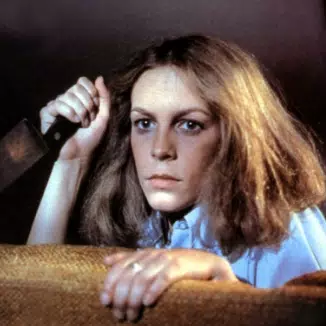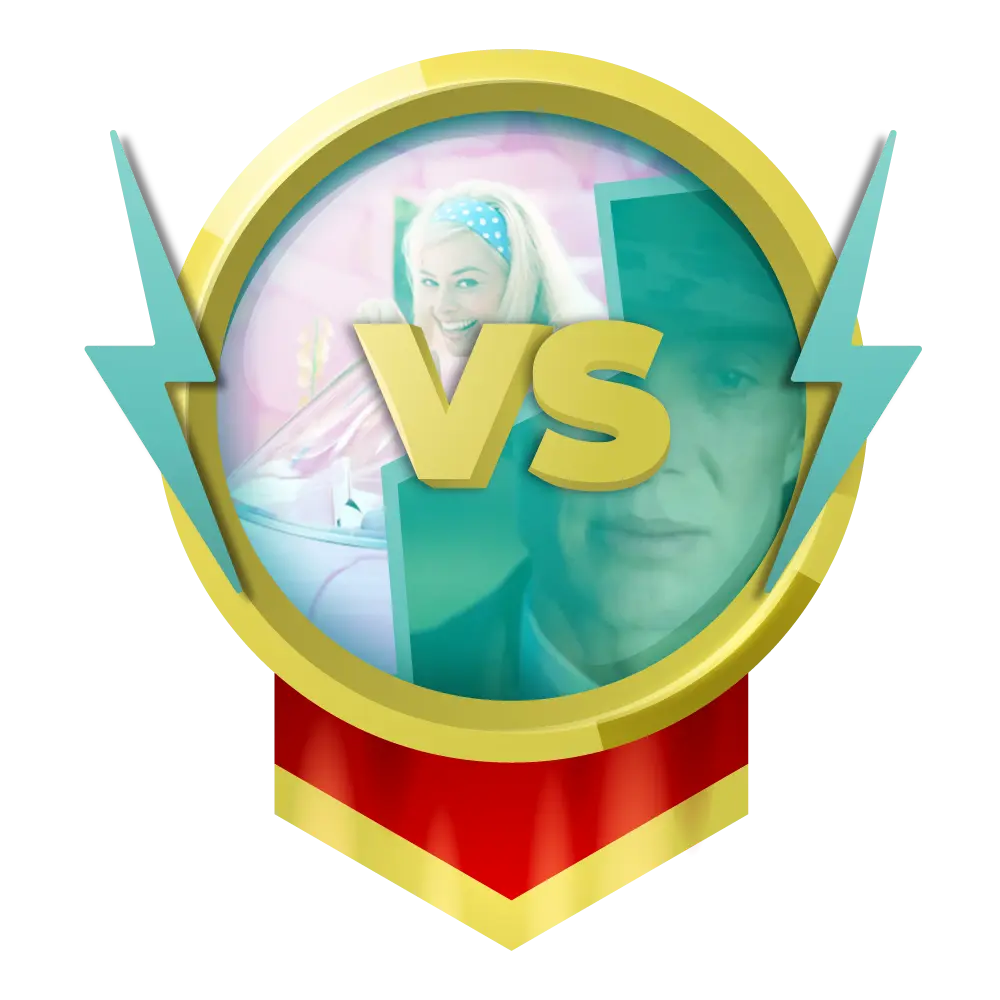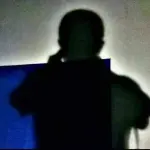Last month, the classic horror movie "Beetlejuice," which was released 35 years ago, officially announced the scheduled release of its sequel, "Beetlejuice 2," on September 6, 2024. The incomparable Michael Keaton as "Beetlejuice" and Winona Ryder as "Lydia" will both return to star in the film, and the director Tim Burton has finally confirmed his return to direct the sequel after denying it multiple times. This news can be considered the best gift for countless "Beetlejuice" fans. After years of waiting and chanting "Beetlejuice" countless times, "Beetlejuice 2" is finally about to turn from legend into reality.
As for why this B-movie-style horror film holds such a memorable place in fans' hearts and why, 35 years later, the well-established creators can gather again for the sequel, it all begins with the enchanting charm of "Beetlejuice."
Tim Burton's First Breakthrough
In a way, "Beetlejuice" marks Tim Burton's first significant directorial feature film. Although he had previously directed "Pee-wee's Big Adventure," which was a commercial success, earning over $40 million at the box office, it was a spin-off project initiated by comedian Paul Reubens in collaboration with Warner Bros. after the success of "The Pee-wee Herman Show." Paul Reubens had seen two short films, "Vincent" and "Frankenweenie," directed by Tim Burton and was deeply impressed. Thus, he approached Burton, who had recently parted ways with Disney and was planning to make a feature debut, to direct "Pee-wee's Big Adventure." While the film also gained a cult following, its success largely relied on the iconic character Pee-wee. Burton, fully aware of this, declined to direct the sequel, "Big Top Pee-wee," and shifted his focus to the film we are discussing today: "Beetlejuice."

While Burton may not have been the sole determinant of the success of "Pee-wee's Big Adventure," he certainly benefited greatly from it. Afterward, Burton discovered that he had become a popular director in Hollywood, receiving numerous top scripts. However, he did not find any of them appealing because what he truly desired was to work on "Batman." Unfortunately, Warner Bros., despite being willing to invest in script development, had no plans to green-light a Batman film. It was not until Michael McDowell's script for "Beetlejuice" came across Burton's desk that the moment he had been waiting for, the moment for Burton and "Beetlejuice" to unite, finally arrived.
From Betelgeuse to Beetlejuice
In the film "Beetlejuice," Adam (Alec Baldwin) and Barbara (Geena Davis) are a loving couple. The childless pair puts tremendous effort into decorating their home, and after an unexpected death, they become ghosts. Reluctant to leave their beloved residence, they witness the sale of their home to the Deetzs who plan to undergo extensive renovations. Adam and Barbara can't bear to see their meticulously crafted home transformed beyond recognition, so they resort to haunting and scaring them. However, their attempts prove futile and only expose them to the teenage girl, Lydia. The Deetzs even try to profit from their ghostly presence. In their desperation, they summon Beetlejuice (Michael Keaton) for assistance, but little do they know that Beetlejuice has ulterior motives beyond helping them...
Whether you have seen this movie or not, just from the plot above, you can sense that "Beetlejuice" is not a typical eerie horror film, but rather a lighthearted comedy. And that's precisely what it is —whether it's the eccentric ghostly couple, the artsy and eccentric Deetzs, or the brooding teenager Lydia, the characters in this story seem like ordinary people who have stumbled into a horror movie set—except for Beetlejuice, who defies all common sense with his unforgettable appearance. With Adam and Barbara dying within the first five minutes of playtime, the ghostly-controlled the Deetzs and guests singing and dancing "Day-O (The Banana Boat Song)" at dinner, and the ghosts waiting in lie to be called in the afterlife world, "Beetlejuice" amplifies the comedy effect. How can something that makes you burst into laughter be intimidating?
In fact, McDowell's original script was far less lighthearted and humorous, leaning towards a darker tone. For instance, the film initially presented Adam and Barbara's accidental death in an almost comical manner. A cute dog's mistake leads to their car plunging into the water, and the audience sees them wet but transformed into ghostly figures upon returning home. However, in the original script, there was a depiction of Barbara's arm being crushed, and the couple screaming as they sank into the water. The original script also had a different ending compared to the final film version. According to writer/producer Larry Wilson, the original script concluded with Lydia dying in a fire and becoming a ghost alongside Adam and Barbara. This ending was ultimately changed to avoid conveying the message to younger viewers that death could be a happy ending. At the time, a senior executive at Universal Pictures famously referred to McDowell's script as "weirdness" and even questioned Wilson, who was working at Universal Pictures at the time, asking why he would waste his good taste on "this piece of shit."
Fortunately, the script found a buyer in the Geffen Company, the production company behind "Beetlejuice." Unfortunately, McDowell and Wilson were required to rewrite the script multiple times for nearly a year before Burton became involved in the project, feeling that they had "ruined the script". It wasn't until Burton's involvement that they had an opportunity to recapture the essence of the original script and, more importantly, experience the serendipitous collaboration of the right people coming together—an alchemy that Wilson admits can be mysterious. Nonetheless, the name of the protagonist, Betelgeuse, derived from the story of the bright red star in the constellation of Orion, is about to make its big-screen appearance as "Beetlejuice."

Beetlejuice, Beetlejuice, Beetlejuice
Eventually, Burton found the perfect cast for "Beetlejuice," which took him quite some time. Except for Geena Davis, the main cast, including Michael Keaton, Winona Ryder, Catherine O'Hara, and Sylvia Sidney, all initially turned down the roles because they thought the script was too weird. However, Michael Keaton, who had already starred in numerous Hollywood comedies, changed his mind after meeting Burton in person. Keaton, eager to alter his image, saw this film as an opportunity to transform his career.
Even after watching "Beetlejuice," many viewers may not realize that Beetlejuice (aka Betelgeuse) doesn't make his appearance until 25 minutes into the 92-minute movie. In fact, his total screen time is less than 17 minutes, which is less than 20% of the entire film. However, this does not diminish Beetlejuice's status as the most captivating and memorable character in the entire movie.
Beetlejuice, whose real name is Betelgeuse (pronounced Beetlejuice), claims to be the afterlife's leading bio-exorcist in his advertisement. As long as he is called correctly by his name three times, he can be summoned. Adam and Barbara, wanting to rid themselves of the Deetzs, summon him and quickly realize that Beetlejuice is a rude, lecherous, prank-loving, and utterly crazy ghost. They soon discover that summoning Beetlejuice has only brought forth a bigger problem. Beetlejuice, once released, becomes infatuated with Lydia, who is still a young girl, and plans to marry her to escape the afterlife. Fortunately, Barbara intervenes at the last moment, riding a sandworm, and successfully sends Beetlejuice back to the afterlife.
While other characters in the movie may perceive Beetlejuice as an unsettling presence, for the audience, this character brings unexpected joy, which owes much to actor Michael Keaton. Due to limited screen time, Keaton completed filming in just two weeks. However, earning his salary was not easy. Alongside his acting duties, Keaton also made valuable contributions to character hairstyle, costumes and dialogue designing.
When director Burton described the role of Beetlejuice to Keaton, he said, "having lived in every time period but no time period." Inspired by this idea, Keaton conceived a unique appearance for Beetlejuice: wild, messy green hair that appeared electrified, large teeth, a pale complexion with dark circles around his eyes, and costumes from different eras. When Beetlejuice's image was first revealed on set, even the crew couldn't help but exclaim, "Juice, Juice, Juice." The film eventually won the Best Makeup Award at the 61st Academy Award.
In addition to his distinctive appearance, Beetlejuice possesses peculiar language habits and behavioral patterns. When Adam asks him about his qualifications for exorcism, Beetlejuice mentions watching "The Exorcist" 167 times as evidence, humorously remarking that it gets funnier with each viewing. At the same time, he engages in jaw-dropping behavior, harassing Barbara, spitting on his own clothes, and committing various mischievous acts that terrify the Deetzs.
In addition to his distinctive appearance, Beetlejuice's peculiar language habits and behavioral patterns also make him unique. When Adam doubts his qualifications for exorcism, Bettlejuice defends by claiming he has watched 'The Exorcist' 167 times and further proves himself by commenting 'it keeps getting funnier every single time I see it." At the same time, he often does something jaw-dropping, harassing Barbara, spitting on his own clothes, and committing various mischievous acts that terrify the Deetzs.
It is worth mentioning that 90% of Beetlejuice's lines in the movie were improvised by Keaton. Not only that, Burton incorporated Keaton's improvised performance into the film. There's a scene in the film where Beetlejuice gets angry at Adam and Barbara for their departure and kicks a tree next to him. During a particular take, after Keaton kicked the tree, it fell down immediately, upon which he said, "Nice fucking model," and gestured by squeezing his crotch twice. It was a shout-out to the crew, but Burton ended up including it in the final film.
It is not an exaggeration to say that the character of Beetlejuice is a key factor in the film's success. Strictly speaking, Beetlejuice is the biggest villain in the movie. Regardless of the consequences, he outrageously interferes willfully in the lives of others, and pushes Adam, Barbara, and Lydia to the brink of collapse. However, his irrational and playful evil downplays the severity of his actions and even masks the lack of narrative logic in the second half of the film. While Beetlejuice's antics and the bewilderment of others may appear overly dramatic, his unique evil makes it all justifiable.
Furthermore, Beetlejuice and the afterlife world he inhabits provide the audience with a glimpse of Tim Burton's unique creative style and imagination. In this realm of ghosts and spirits, various grotesque apparitions must still abide by the complex bureaucracy that manages them. Every deceased individual must diligently study the manual of the dead, and public servants are ghosts who took their own lives. These settings not only serve as satirical reflections of the living world but also exhibit a distinct blend of dark humor, casualness, and otherworldly elements. This stylistic approach can be observed in other works directed and written by Tim Burton, such as "Edward Scissorhands," "Corpse Bride," and "The Nightmare Before Christmas." By uttering "Beetlejuice, Beetlejuice, Beetlejuice," we are reminded of not only the hilariously absurd character Beetlejuice but also invoke Tim Burton's cinematic universe.
Back to Beetlejuice
There is no doubt that Beetlejuice's success and influence are undeniable. With a budget of $15 million, it ultimately grossed over $74 million worldwide, placing it in the top 10 of the North American box office in 1988. Despite having a visual effects budget of only $1 million, Burton's concept of designing visual effects in the style of B movies resulted in a unique visual aesthetic that perfectly complements the film's characters and narrative. The toy-like sandworm and the simplistic, claustrophobic underground world evoke playful enjoyment rather than fear.
Composer Danny Elfman and Tim Burton joined forces once again after their initial collaboration on "Pee-wee's Big Adventure," solidifying a long-term partnership. Elfman has worked on every Burton-directed film, except for "Ed Wood," "Sweeney Todd: The Demon Barber of Fleet Street," and "Miss Peregrine's Home for Peculiar Children."
Furthermore, Beetlejuice marked a turning point in the careers of Tim Burton, Michael Keaton, and Winona Ryder, who was a teenager at the time. The consecutive successes of Pee-wee's Big Adventure and Beetlejuice opened doors for Tim Burton to eventually direct Batman, while Michael Keaton's portrayal of Batman in two Burton-directed films contributed to their commercial success, grossing over $400 million. These movies also influenced the marketing and development approach of Hollywood superhero films. Winona Ryder, who left a lasting impression with her portrayal of the Gothic girl in Beetlejuice, went on to star in Burton's "Edward Scissorhands," establishing herself as one of the most significant actresses in Hollywood during the 1990s.
Beetlejuice's commercial success led to the release of an animated series titled "Beetlejuice" in 1989, as well as various video games. In 2018, on the film's 30th anniversary, the "Beetlejuice" musical premiered, receiving enthusiastic acclaim from audiences and fans, affirming their enduring love for "Beetlejuice."


After numerous delays and unexpected turns, Beetlejuice's sequel, Beetlejuice 2, has finally announced its official schedule and commenced filming in London in May. Tim Burton returns as the director, and the original cast members Michael Keaton, Winona Ryder, and Catherine O'Hara will reprise their roles. They will be joined by newcomers Jenna Ortega, Monica Bellucci, Justin Theroux, and Willem Dafoe. Jenna Ortega will portray Lydia's daughter, while Monica Bellucci takes on the role of Beetlejuice's wife. Additionally, composer Danny Elfman and costume designer Colleen Atwood, who have collaborated with Tim Burton on multiple occasions, have joined the project. With Tim Burton reuniting with both familiar and fresh collaborators, they are summoning Beetlejuice once again.
Although many believe that capturing the imaginative and creatively bizarre essence of "Beetlejuice" is an unattainable feat, fans are still thrilled about the sequel, "Beetlejuice 2," after more than 30 years. We eagerly await to see what wondrous world Beetlejuice will transport the audience to this time. So, let us keep looking forward to the sequel, while dancing to the delightful tune of "Day-O (The Banana Boat Song)."




















































Share your thoughts!
Be the first to start the conversation.